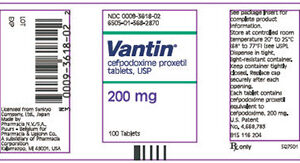Bactrim, also known by its generic name sulfamethoxazole and trimethoprim, is an antibiotic medication used to treat various bacterial infections. It belongs to the class of drugs known as sulfonamides, which work by inhibiting the growth of bacteria in the body. Bactrim is available in tablet and oral suspension forms, and it is commonly prescribed for conditions such as urinary tract infections, ear infections, bronchitis, and certain types of pneumonia.
Do’s and Don’ts
Contraindications or situations in which Bactrim should not be taken include:
1. Hypersensitivity: Individuals with a known allergy to sulfonamides or any of the components of Bactrim should avoid taking this medication.
2. Severe liver or kidney disease: Bactrim can affect liver and kidney function, so it should be used with caution in patients with severe liver or kidney impairment.
3. Pregnant or breastfeeding: Bactrim may harm the developing fetus or pass into breast milk, so it should not be used during pregnancy or while breastfeeding.
4. Blood disorders: Patients with a history of blood disorders, such as aplastic anemia or thrombocytopenia, should avoid using Bactrim.
5. Aging population: Elderly patients may be more prone to developing certain side effects of Bactrim, such as skin reactions or low blood sodium levels, and should be closely monitored while taking this medication.
Managing Side Effects
Bactrim may cause side effects, which should be monitored and reported to a healthcare professional if severe or persistent. Common side effects include:
1. Nausea and vomiting: Taking Bactrim with food can help alleviate gastrointestinal symptoms.
2. Allergic reactions: Reactions such as rash, itching, or swelling may occur. Discontinue Bactrim and seek medical attention if an allergic reaction is suspected.
3. Skin reactions: Bactrim can cause photosensitivity, resulting in increased sensitivity to the sun. It is important to use appropriate sun protection measures while on this medication.
4. Blood disorders: Bactrim may affect blood cell counts, leading to anemia, low white blood cell count, or low platelet count. Regular blood tests may be necessary to monitor for such complications.
5. Nervous system effects: Bactrim can rarely cause side effects such as headache, dizziness, or confusion. If these symptoms occur, medical advice should be sought.
Dosing Information
When taking Bactrim, it is essential to follow the prescribed dosing instructions provided by the healthcare provider. The typical adult dose for most infections is one Bactrim DS tablet (containing 800 mg sulfamethoxazole and 160 mg trimethoprim) every 12 hours for 10-14 days.
If a dose is missed, it should be taken as soon as possible unless it is close to the next scheduled dose. In such cases, the missed dose should be skipped and the regular dosing schedule should be resumed. Doubling the dose to make up for a missed dose is not recommended.
In the event of an overdose, medical attention should be sought immediately. Symptoms of overdose may include nausea, vomiting, dizziness, or skin rash. Supportive measures such as gastric lavage or activated charcoal administration may be employed to reduce drug absorption.
Bactrim and Other Medications
Bactrim may interact with certain medications, affecting their effectiveness or increasing the risk of side effects. It is important to inform healthcare providers about all the medications being taken, including prescription, over-the-counter, and herbal products. Some notable drug interactions with Bactrim include:
1. Warfarin: Bactrim can enhance the anticoagulant effect of warfarin, increasing the risk of bleeding. Regular monitoring of blood clotting should be done.
2. Methotrexate: Concurrent use of Bactrim and methotrexate can increase methotrexate levels in the blood, potentially leading to toxicity. Close monitoring of methotrexate levels and appropriate dose adjustments may be necessary.
3. ACE inhibitors or diuretics: Bactrim can potentiate the effects of ACE inhibitors and diuretics, leading to low blood pressure or electrolyte imbalances. Blood pressure and electrolyte levels should be closely monitored.
4. Oral hypoglycemic agents or insulin: Bactrim can enhance the effects of oral hypoglycemic agents or insulin, leading to low blood sugar levels. Regular blood sugar monitoring is important, especially in diabetic patients.
5. Phenytoin: Bactrim can increase blood levels of phenytoin, potentially causing toxicity. Phenytoin levels should be closely monitored, and appropriate dose adjustments may be necessary.
Ask and Answer
-
Q: Can Bactrim be used to treat viral infections?
A: No, Bactrim is not effective against viral infections. It is specifically designed to target bacterial infections. -
Q: Can Bactrim be used in children?
A: Bactrim can be used in children, but the dosage may vary based on the child’s age, weight, and the specific infection being treated. It is important to consult a healthcare professional for appropriate pediatric dosing. -
Q: How long does it take for Bactrim to start working?
A: The onset of action of Bactrim varies depending on the infection being treated. However, in many cases, improvement in symptoms can be seen within a few days of starting the medication. -
Q: Can Bactrim be taken with food?
A: Bactrim can be taken with or without food. However, taking it with food may help reduce gastrointestinal side effects. -
Q: Is it safe to consume alcohol while taking Bactrim?
A: It is generally recommended to avoid alcohol consumption while on Bactrim. Alcohol can increase the risk of certain side effects and may reduce the effectiveness of the medication.






Reviews
There are no reviews yet.